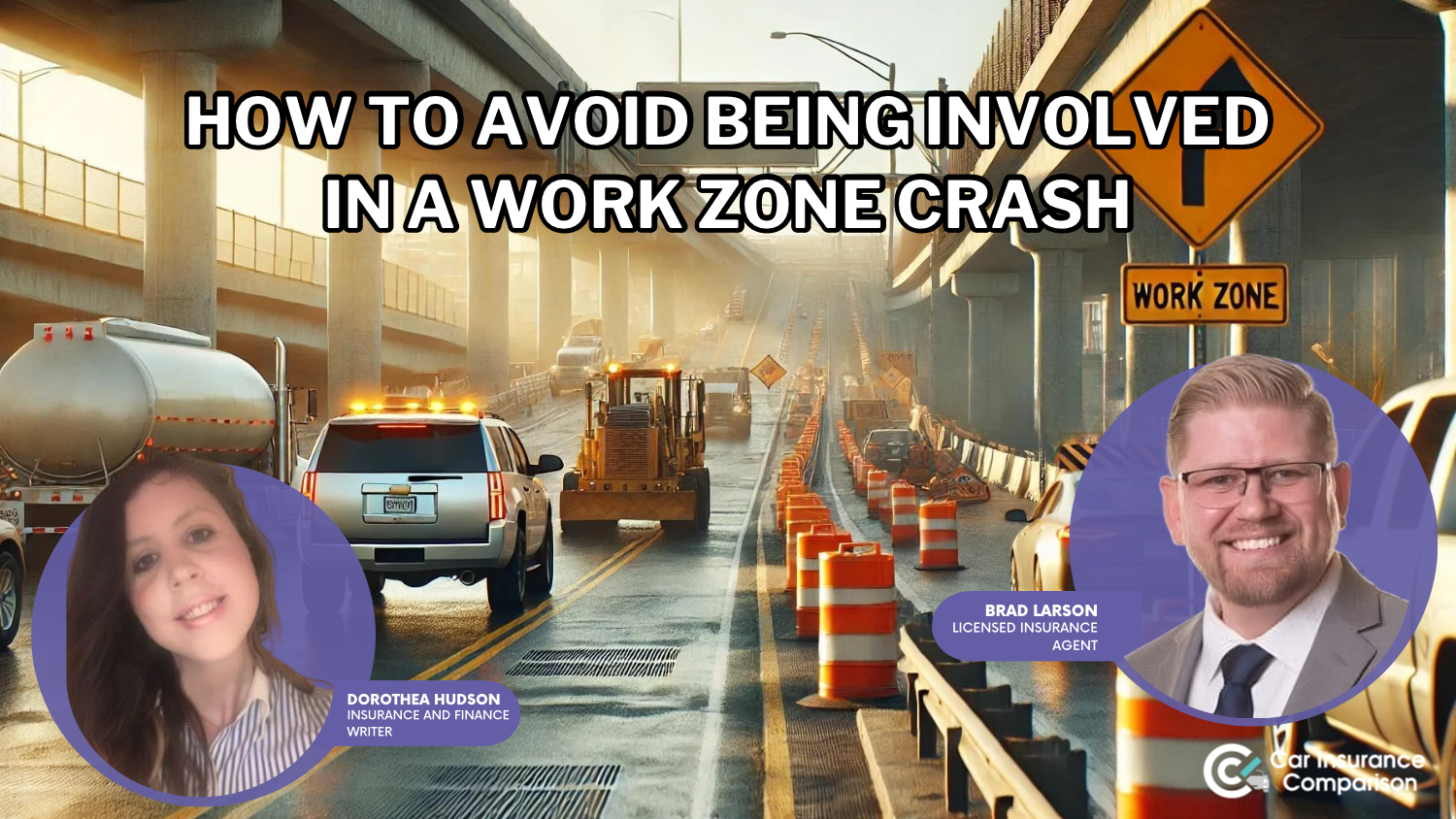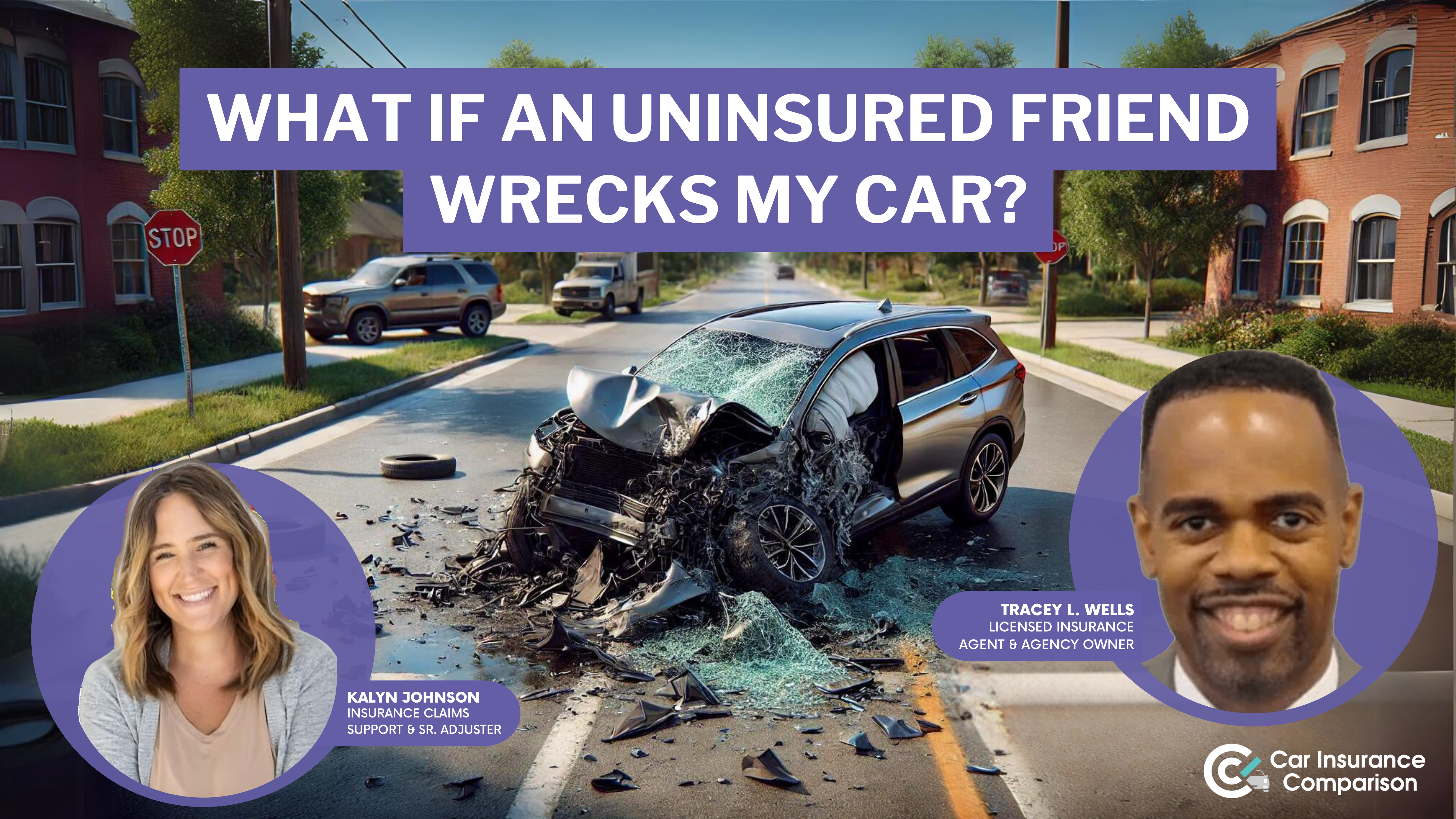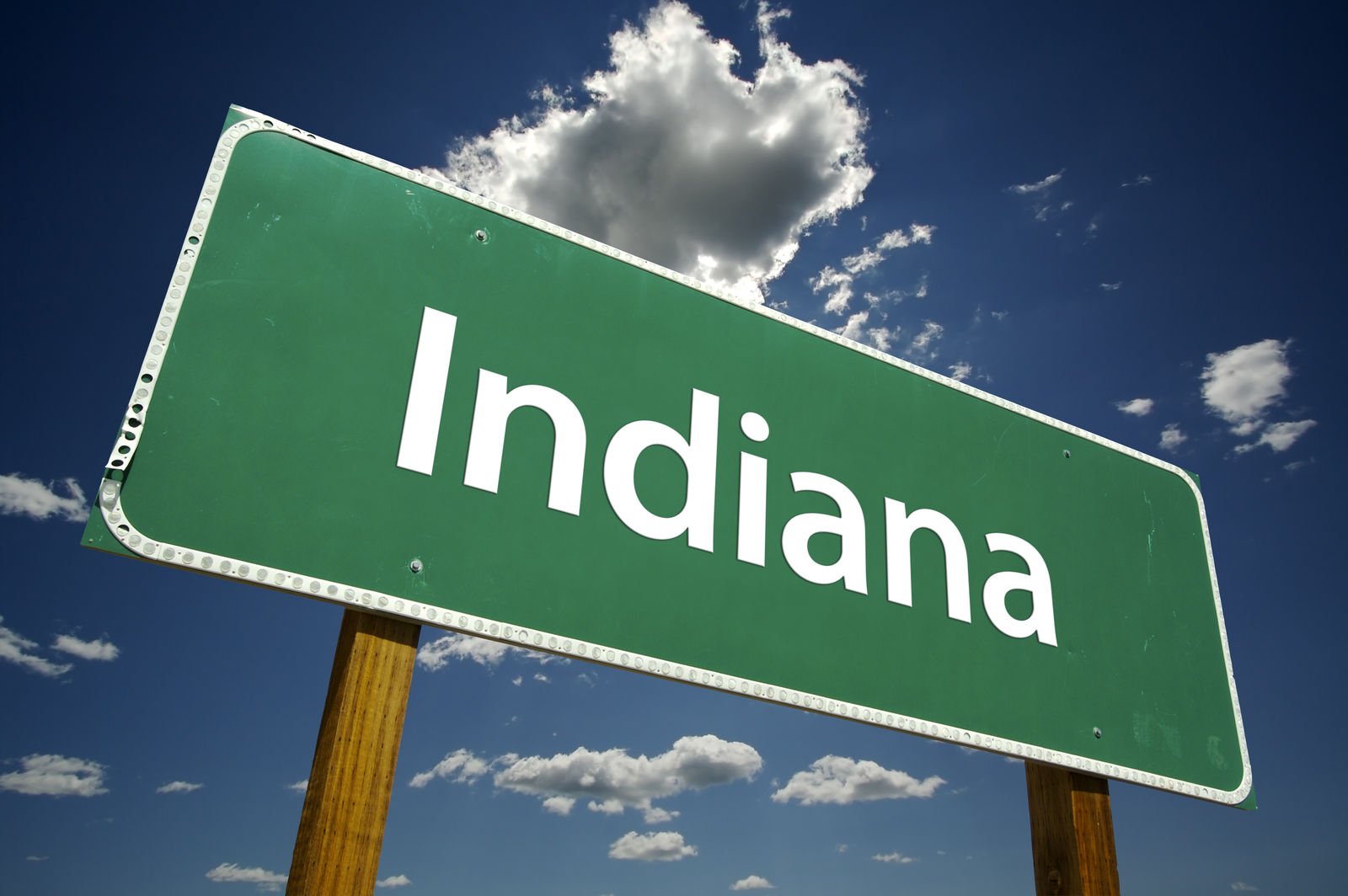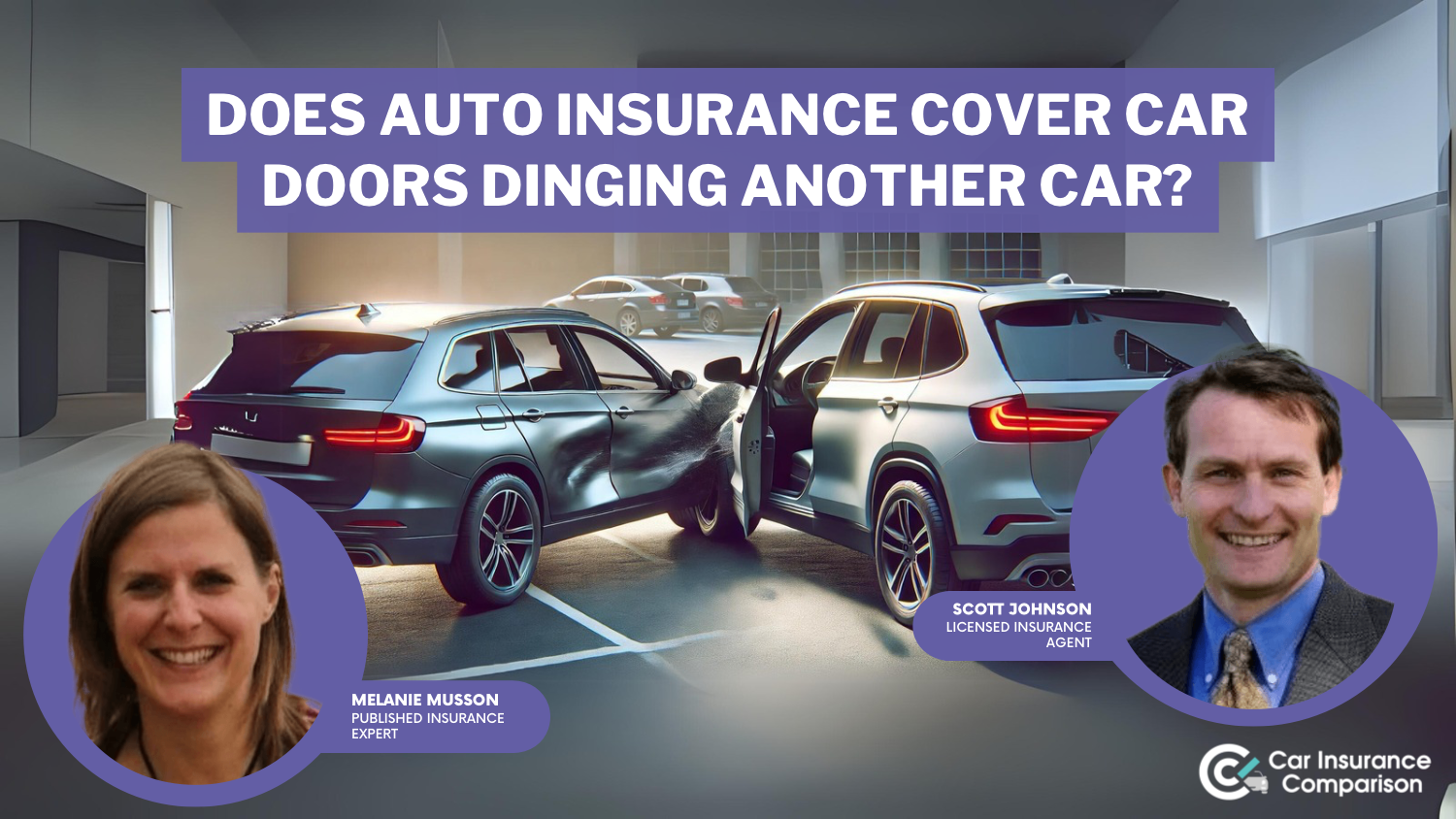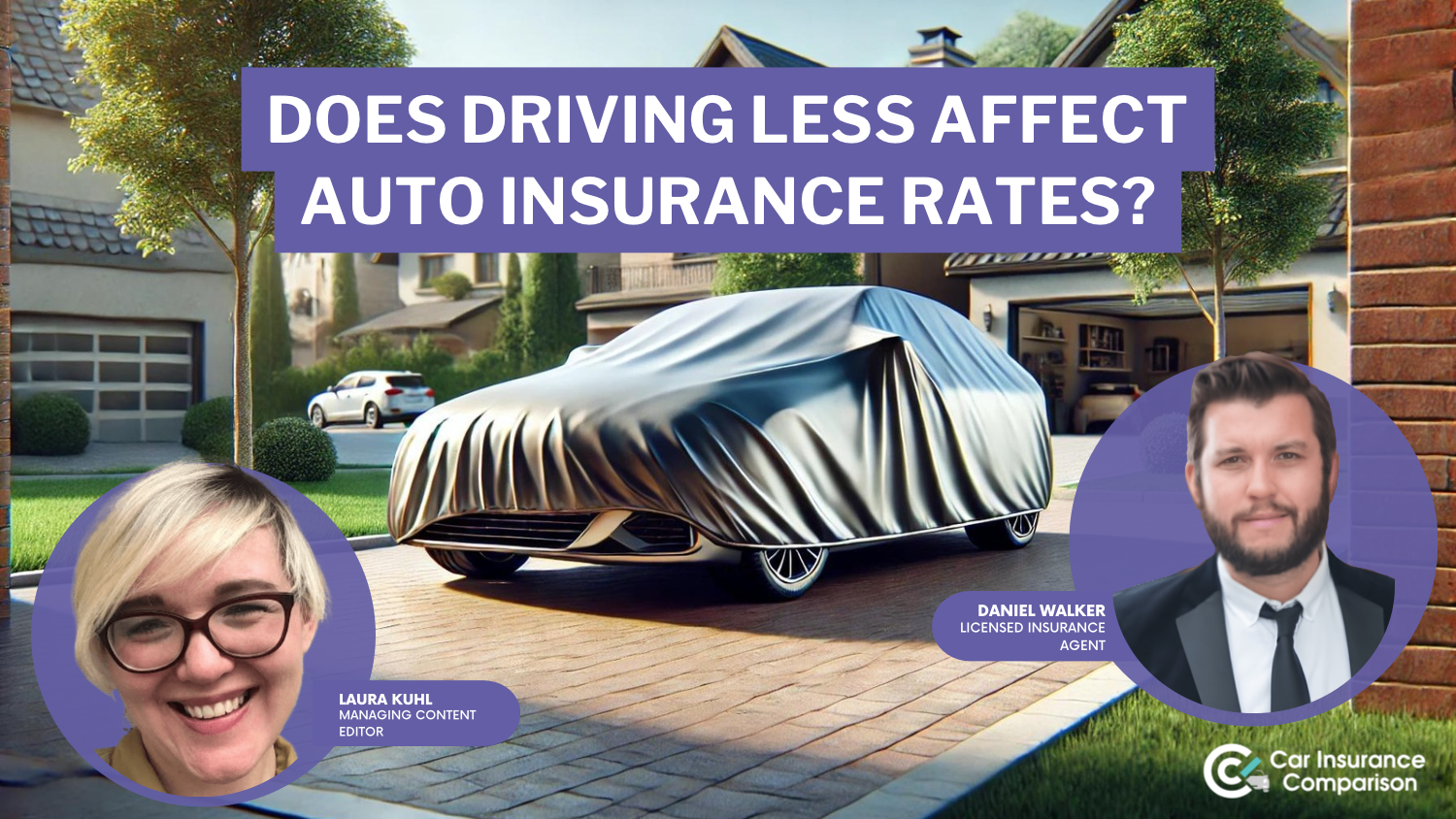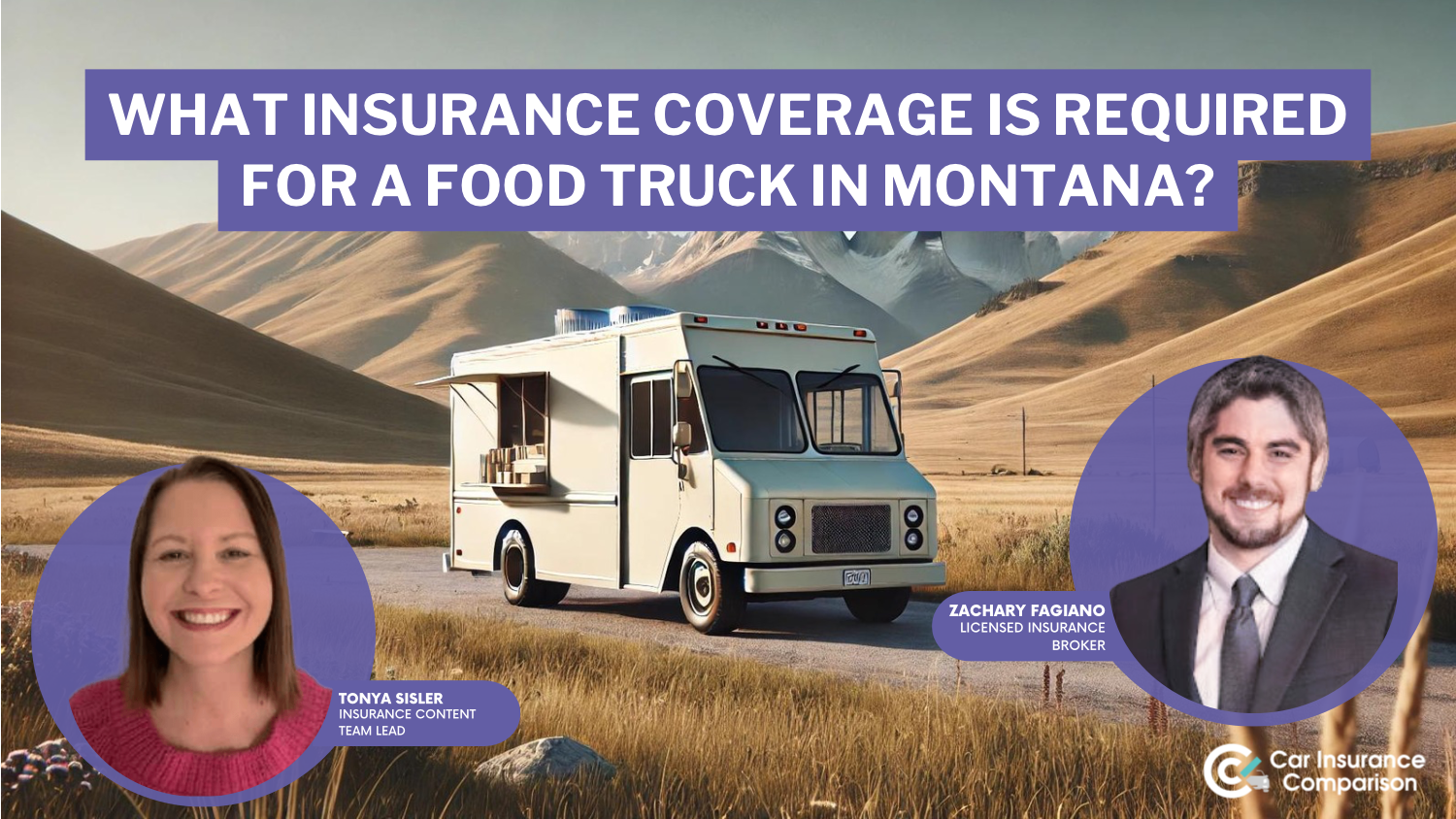Collision vs. Comprehensive: What is the difference?
Collision insurance costs $378/year on average and comprehensive costs $168/year. Collision pays for damages resulting from an accident, while comprehensive covers claims involving weather, vandalism, and more.
Read more Secured with SHA-256 Encryption





Table of Contents
Table of Contents


Licensed Insurance Agent
Brad Larson has been in the insurance industry for over 16 years. He specializes in helping clients navigate the claims process, with a particular emphasis on coverage analysis. He received his bachelor’s degree from the University of Utah in Political Science. He also holds an Associate in Claims (AIC) and Associate in General Insurance (AINS) designations, as well as a Utah Property and Casual...
Brad Larson


Licensed Insurance Agent
Scott W Johnson is an independent insurance agent in California. Principal Broker and founder of Marindependent Insurance Services, Scott brings over 25 years of experience to his clients. His Five President’s Council awards prove he uses all he learned at Avocet, Sprint Nextel, and Farmers Insurance to the benefit of his clients. Scott quickly grasped the unique insurance requirements of his...
Scott W. Johnson
Updated November 2024
- Collision and comprehensive insurance are add-on coverage options that offer drivers further protection in the event of an accident
- Over 70% of insured drivers purchase collision and comprehensive insurance
- Drivers must pay a deductible before insurance will cover their collision or comprehensive claim
Car insurance can protect you financially, but how much depends on the type of coverage you carry. Most states require a minimum amount of coverage, but for more protection, drivers can purchase collision and comprehensive insurance in addition to liability-only. This is known as full coverage car insurance.
Although collision and comprehensive insurance are optional, many drivers can save thousands of dollars when adding both to their policy since it covers the cost of vehicle repair or replacement in a variety of unique situations.
Here’s more on the differences between comprehensive vs. collision insurance and how both of these policies work.
What is the difference between comprehensive and collision insurance?
Comprehensive and collision coverage often go together, but you can also purchase them separately from most companies.
Collision insurance covers vehicle damage resulting from the following:
- Collision with an object, such as a telephone pole, mailbox, or guardrail
- Rollover
- Potholes
Comprehensive insurance covers vehicle damage resulting from the following:
- Contact with an animal
- Fire
- Vandalism
- Riot
- Natural disasters (flood, hurricane, tornado, earthquake)
- Theft (entire vehicle or parts)
- Fallen objects (trees, tree branches, or ice)
Since collision and comprehensive only apply to property damage, certain expenses aren’t covered.
What Collision vs. Comprehensive Insurance Doesn’t Cover
Collision and comprehensive insurance don’t cover the following:
- Medical bills
- Lost wages
- Funeral expenses
- Stolen items
Typically, the at-fault driver’s liability insurance covers bodily injury and property damage for others involved. If you’re the at-fault driver, personal injury protection or medical payment coverage applies to your bodily injury expenses, while comprehensive and collision insurance covers property damage.
Read More: Will my car insurance go up if I hit a deer with my car?
Free Insurance Comparison
Compare Quotes From Top Companies and Save
Secured with SHA-256 Encryption
How to File Collision and Comprehensive Claims
Here are some examples of when a driver can file a collision claim with their car insurance company:
- Vehicle slides on ice and collides with a guardrail.
- Vehicle hit a pole after the driver swerved to avoid hitting an animal.
- Another driver drives off after damaging your vehicle.
Here are some examples of when a driver can file a comprehensive claim with their car insurance company:
- Fender is dented after the vehicle hits a deer.
- Vehicle is damaged in a garage fire.
- Vehicle is damaged by a hail storm.
- Vehicle is not found after being stolen.
When filing a collision or comprehensive claim, drivers must pay a deductible. Scroll down to learn more about choosing car insurance deductibles and how much it costs.
What is a deductible?
As mentioned, collision and comprehensive insurance both carry a deductible, which is a fee paid by the driver when filing a claim following an accident.
Typically, drivers choose between a $250, $500, or $1,000 deductible. In the event of an accident, the driver pays the deductible, and the claim is paid minus the deductible amount.
For example, let’s say you are involved in an accident resulting in vehicle damage worth $2,500 and your deductible is $500. You pay your insurance company $500, and you’ll receive a payout of $2,000 to cover the cost of repairs.
Depending on your insurance company, you’ll have a diminishing deductible, which is awarded to drivers who go claims-free for a certain period.
How much does it cost to buy collision and comprehensive insurance?
Collision insurance costs an average of $290 per year or around $25 per month. Comprehensive insurance costs a little less at an average of $134 per year, or $11 monthly.
Take a look at the table below for what you can expect to pay for full coverage insurance by state.
Commercial Car Insurance Monthly Rates by Provider and State
| Company | California | Florida | Georgia | Illinois | Michigan | New York | North Carolina | Ohio | Pennsylvania | Texas |
|---|---|---|---|---|---|---|---|---|---|---|
| $199 | $183 | $165 | $176 | $406 | $147 | $169 | $120 | $148 | $201 | |
| $138 | $188 | $124 | $114 | $204 | $137 | $82 | $62 | $108 | $176 | |
| $167 | $227 | $149 | $117 | $335 | $165 | $99 | $96 | $131 | $137 | |
| $101 | $89 | $61 | $47 | $99 | $78 | $69 | $59 | $68 | $105 | |
 | $216 | $161 | $263 | $76 | $424 | $200 | $82 | $106 | $219 | $178 |
 | $142 | $103 | $152 | $93 | $257 | $164 | $111 | $114 | $86 | $154 |
| $132 | $153 | $115 | $89 | $152 | $96 | $32 | $85 | $148 | $121 | |
| $108 | $99 | $107 | $64 | $209 | $137 | $77 | $70 | $76 | $90 | |
| $122 | $166 | $110 | $87 | $183 | $175 | $99 | $63 | $75 | $101 | |
| $74 | $47 | $71 | $62 | $107 | $85 | $44 | $41 | $57 | $62 |
Over 70% of insured drivers purchase collision and comprehensive insurance. If you lease a vehicle or have an auto loan, you will be required to buy both policies. Keep in mind that location can impact the cost of these two coverages, so insurance quotes vary based on the auto accident and theft rates in your city.
Vehicle Theft in the United States
Vehicle theft has continued to increase in the U.S. over the years. In fact, according to the National Highway Traffic Safety Administration (NHTSA), a vehicle is stolen every 39 seconds.
Although comprehensive coverage will pay the value of the vehicle if it is stolen, there are things drivers can do to protect their vehicle and prevent theft.
The National Insurance Crime Bureau (NICB) recommends the following:
- Common sense. Lock doors and windows, park in well-lit areas, and remove keys from the ignition or fobs from vehicles.
- Warning devices. Use warning devices, such as alarms, brake locks, column collars, and wheel locks.
- Immobilizing devices. Use immobilizing devices, such as smart keys, kill switches, fuse cut-offs, and fuel pump disablers.
- Tracking devices. Use tracking devices, such as GPS, to monitor and track the vehicle’s movement and location.
Vehicle theft can occur anywhere at any time, but if your state has a high vehicle theft rate, adding comprehensive insurance to your policy can put your mind at ease.
What is the maximum insurance payout for collision and comprehensive insurance?
Insurance companies pay out up to the vehicle’s value minus the deductible when collision and comprehensive claims are filed.
Insurance companies consider vehicles totaled when:
- Repairs cannot be completed to ensure the vehicle is safe to drive
- Cost of repairs exceeds the vehicle’s value
- Cost of repairs exceeds a percentage of the vehicle’s value, based on the state’s total loss threshold
So if you are involved in an accident and your vehicle is worth $5,000, but the damage totals $6,000, your insurance company would pay you $5,000, the value of your vehicle, minus the deductible.
Some insurance companies, like Liberty Mutual and Allstate, offer new car replacements. This optional coverage replaces your totaled vehicle with a vehicle of the same make, model, and year. However, this coverage will raise your monthly rates, and only certain vehicles will qualify for this coverage.
Free Insurance Comparison
Compare Quotes From Top Companies and Save
Secured with SHA-256 Encryption
Do I need comprehensive and collision insurance?
Most states only require liability insurance, so collision and comprehensive are optional.
However, drivers with a lease or auto loan are often required to carry comprehensive and collision insurance. These coverages can be dropped once the loan is repaid, but drivers can continue to carry them.
Drivers without a lease or auto loan can still benefit from collision and comprehensive insurance. Since liability only covers bodily injury and property damage for other drivers and passengers, drivers are left financially vulnerable because they will have to pay out of pocket for their property damage if they cause an accident.
According to the Insurance Information Institute, the average collision claim in 2018 was $3,574, and the average comprehensive claim was $1,833. We’ll take a look at an example using the average collision claim amount of $3,841.
Let’s say you hit a guardrail and cause $3,841 worth of damage to your vehicle worth $3,500. If your deductible is $1,000 you’ll receive a payout of $2,500.
Without collision insurance, you wouldn’t receive an insurance payout if you are at fault for the accident, which could make it worth paying a higher premium and deductible.
If you are unsure if you need collision or comprehensive, ask yourself if you can afford a new vehicle or repairs if yours was stolen, damaged, or totaled. If paying thousands out of pocket isn’t in your budget, adding collision and comprehensive insurance to your policy is a good idea.
Of course, if your vehicle is not worth much, it may not pay to add these coverages, especially if you have a high deductible and won’t get much from your insurance after the vehicle is damaged, totaled, or stolen.
What happens if someone else damages my car?
Collision insurance can cover damages when you or someone else has damaged your vehicle in an accident.
If your vehicle is hit and damaged by another driver, you can choose to do one of the following:
- File a claim with the other driver’s insurance, which will cover property damage with the driver’s liability insurance.
- File a collision claim with your insurance, which will cover property damage after you pay the deductible.
If you choose to file a collision claim with your insurance company, the deductible may be reimbursed if the other driver is found at fault.
Will insurance cover a rental while my car is repaired?
Drivers have the option to rent a car while their vehicle is repaired. Your insurance applies to the rental, so purchasing the coverage offered by the rental company is unnecessary. However, if you are involved in an accident while driving the rental, any claims will be made against your insurance, which will potentially increase your rates.
When it comes to paying for the rental, you’ll need to add rental reimbursement to your policy if you don’t want to pay out of pocket. Daily limits and maximums will apply, but you get to choose how much rental coverage you get.
Drivers should note the length of the repair service depends on many factors, including parts availability, type of damage, and the type of vehicle. The average repair time in the United States is almost 11 days. If your rental exceeds the daily limit or coverage maximum, you pay the difference.
Case Studies: Collision vs. Comprehensive Insurance Claims
Case Study 1: The Fender Bender
Sarah was driving her car when she accidentally rear-ended the car in front of her at a stop sign. Both vehicles sustained minor damages. Sarah had collision insurance coverage, so she promptly contacted her insurance company to report the accident.
An adjuster inspected the damages and determined that the repairs would cost $1,500. Since Sarah had a $500 deductible, she paid that amount out of pocket, and her insurance company covered the remaining $1,000 to fix her car.
Case Study 2: The Hailstorm
During a severe hailstorm, Mark’s car was parked outside, and it suffered significant damage from hailstones. Mark had comprehensive insurance coverage, so he contacted his insurance company to file a claim. An adjuster assessed the damages and estimated the repair cost at $2,000. Mark had a $250 deductible, which he paid, and the insurance company covered the remaining $1,750 to repair his car.
Case Study 3: The Stolen Vehicle
Jessica’s car was stolen from a parking lot. She immediately contacted her insurance company and reported the theft. Jessica had comprehensive insurance coverage, which included coverage for theft. The insurance company initiated an investigation and worked with the police to locate the stolen vehicle. Unfortunately, the car was never recovered.
However, since Jessica had comprehensive coverage, her insurance company reimbursed her for the value of the car, which was $10,000, minus her $500 deductible. She received a payout of $9,500 to compensate for the loss.
Bottom Line: Should I buy collision and comprehensive insurance?
Collision and comprehensive insurance protect drivers financially, so it would make sense for people to take advantage of these optional coverages. When you buy collision and comprehensive insurance along with the liability minimums in your state, you are carrying full coverage car insurance.
Drivers with expensive vehicles would benefit the most from purchasing collision and comprehensive because it can cost thousands to repair or replace their car. But anyone who doesn’t have the money to cover the costs of repairs after an accident can also appreciate how much collision and comprehensive insurance could potentially save them.
Start comparing car insurance quotes now to see how much collision and comprehensive insurance costs in your state.
Frequently Asked Questions
What is collision insurance?
Collision insurance is a type of auto insurance coverage that helps pay for damages to your vehicle resulting from a collision with another vehicle or object, regardless of who is at fault. It typically covers repairs or provides reimbursement for the actual cash value (ACV) of your vehicle if it is deemed a total loss.
What does comprehensive insurance cover?
Comprehensive insurance, sometimes referred to as “other than collision” coverage, is a type of auto insurance that protects against damage to your vehicle caused by non-collision incidents. This can include theft, vandalism, fire, natural disasters, falling objects, and certain other perils specified in your policy.
Do I need both collision and comprehensive insurance?
The need for collision and comprehensive insurance depends on your circumstances and the value of your vehicle. If you have a car loan or lease, the lender or lessor will likely require you to carry both coverages. However, if your vehicle is older or has a lower value, you might consider whether the cost of the premiums outweighs the potential benefits of having both coverages.
How does collision insurance work?
When you have collision insurance and are involved in an accident, you will need to file a claim with your insurance company. After paying the deductible (the amount you must contribute towards repairs), your insurer will cover the remaining cost, up to the actual cash value of your vehicle. If the cost of repairs exceeds the ACV, the vehicle may be deemed a total loss, and you may receive a payout based on the ACV instead.
How does comprehensive insurance work?
With comprehensive insurance, when your vehicle sustains damage due to a covered non-collision event, you file a claim with your insurance provider. After paying the deductible, your insurer will cover the cost of repairs or provide a payout based on the actual cash value of the vehicle if it is deemed a total loss. The specific coverage and limits will vary depending on your policy.
Get a FREE Quote in Minutes
Insurance rates change constantly — we help you stay ahead by making it easy to compare top options and save.


